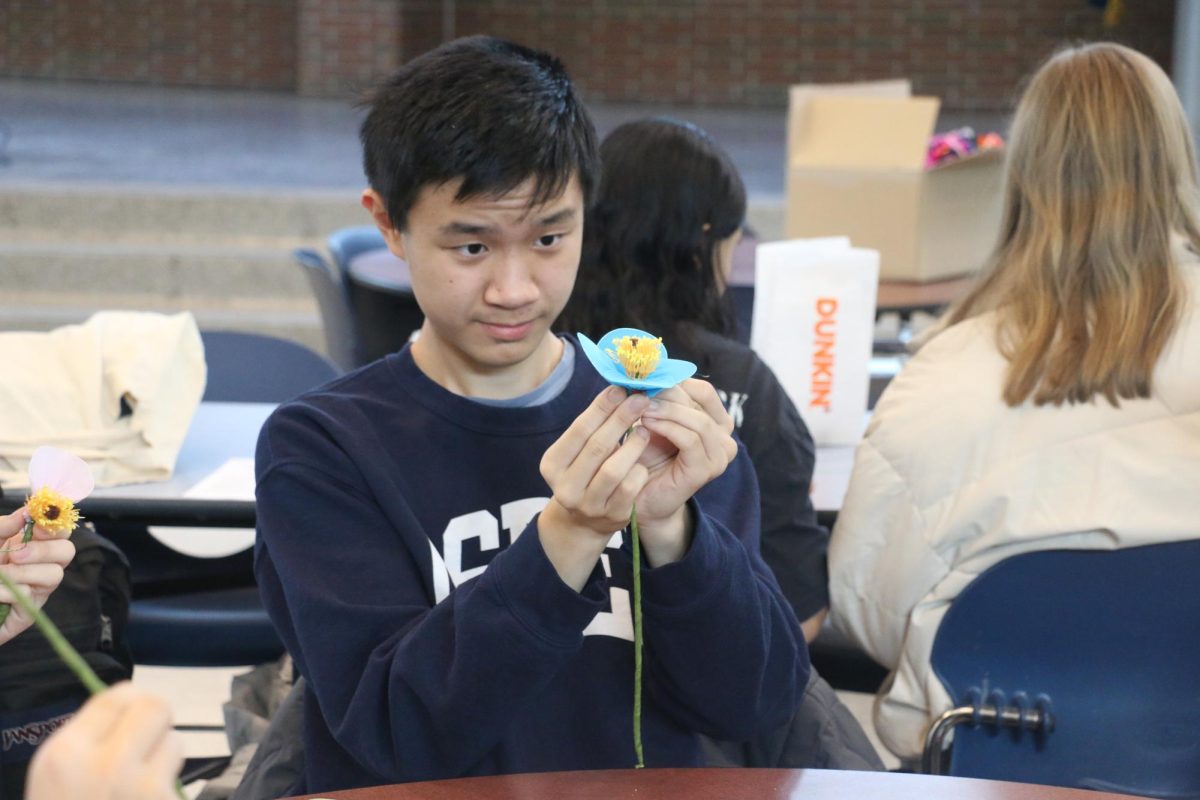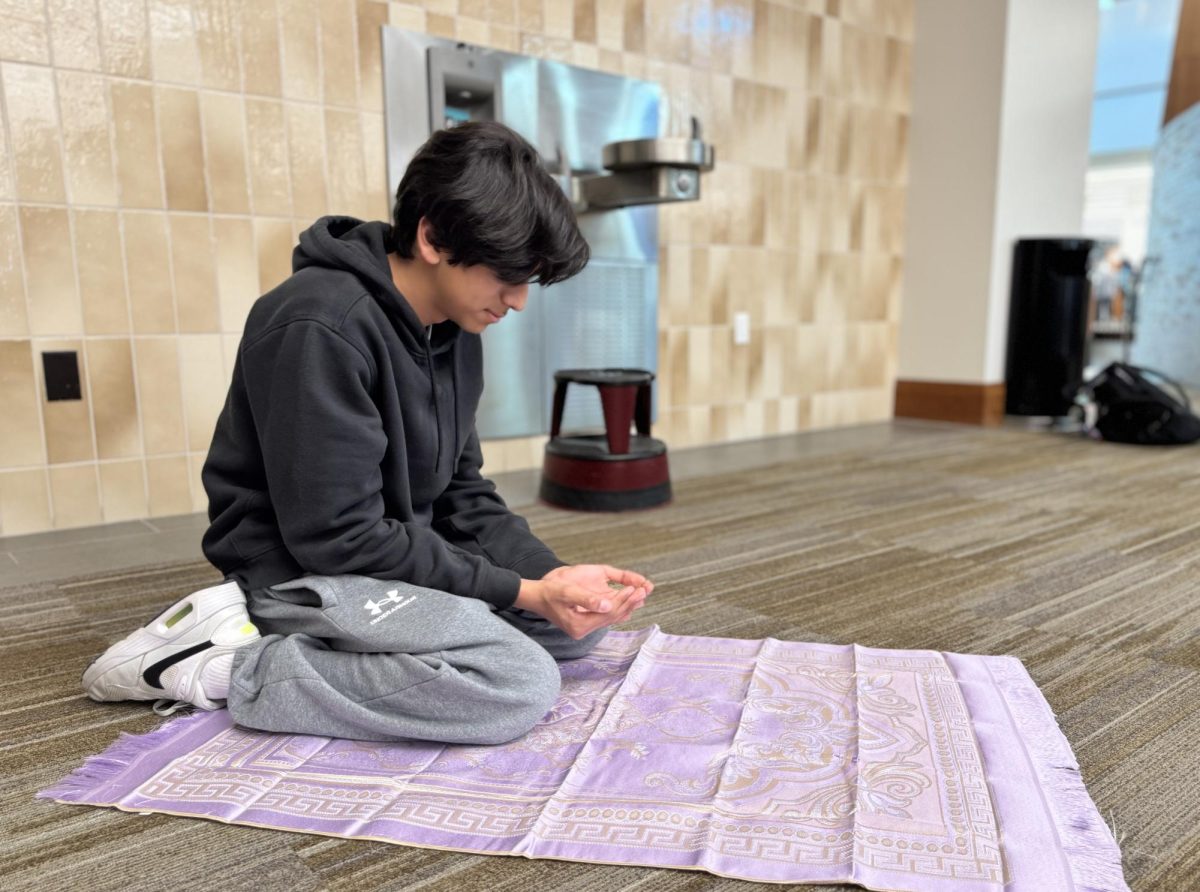Six years after junior Natasha Crasta adopted her two cats, she put them up for adoption, writing down “moving” as the reason for giving them up. Despite her many attempts to convince her parents to keep her pets, she eventually gave in, realizing it would be impossible to transport her two energetic cats to her new home.
It seems at first that moving, experiencing allergies and having newborn animals would not cause a great issue for pet owners, but recent studies show that these seemingly petty reasons for putting up animals for adoption have increased significantly.
In the Aug. 19 article “Overcrowding at Humane Society for Hamilton County could lead to euthanasia” by RTV6, the number of surrendered pets in The Humane Society for Hamilton County (HSHC) has doubled within that week, increasing from 60 to 65 pets per week to over 120. Amanda Hunter, Manager of Community Outreach at the HSHC, said via email that this new influx poses many problems for the shelters.
 “We never want to euthanize adoptable animals for any reason. That is what our philosophy is based on, but it is important for the community to understand that being a no-kill shelter is a collaborative effort,” Hunter said. “We can’t do it without the community’s continued support.”
“We never want to euthanize adoptable animals for any reason. That is what our philosophy is based on, but it is important for the community to understand that being a no-kill shelter is a collaborative effort,” Hunter said. “We can’t do it without the community’s continued support.”
But for Crasta, keeping and transporting her two cats posed an issue as well.
“When they got sick, I hated taking them to the vet because they would freak out in the car; that was when I realized traveling is an issue with these pets,” Crasta said.
In addition to the long drive to her new home, the expenses with keeping older pets were problematic, too.
“This was the only time we got a pet, and we didn’t realize it would be an issue until we had to move again,” Crasta said. “For cats, their food is expensive; their litter is expensive; their vet is expensive, and since we were going to be living in a new place, finding that specific type of food they used to eat is difficult as well.”
However, Crasta’s situation is more the rule than the exception. Hunter said she sees increased numbers of older animals being surrendered in the shelters due to family relocation and other common reasons, such as allergies.
“The most heartbreaking part is over 50 animals in our care are over the age of 10,” Hunter said. “More animals means more expense, and older animals typically require more medical care and don’t get adopted as often.”
One way that CHS students are dealing with this crisis is by volunteering more at the shelters and spreading the word to other families. Senior Rachel Krieger said she began volunteering at the HSHC last month to help out with the new influx of animals.
“They sent out an email saying they had an incredible number of animals in the shelter and needed more help,” Krieger said. “So far I’ve done laundry, cleaned in the cattery and helped socialize the cats. It’s the greatest thing; they actually want people to come in and play with the cats. You can get volunteer hours for just spending time playing with kitties. How perfect is that?”
For people who cannot keep pets for a long period of time, Hunter said there are still many ways to help out the shelters.
“If you can’t adopt, foster an animal. Can’t foster? Then donate. Can’t donate? Then volunteer,” Hunter said.
While Crasta did not want to give up her cats, she said she knows they found a great family and hopes they will live happily there.
Crasta said, “We move a lot, and we travel a lot, so we had no idea who to give them to, where to keep them, and it would be a really long drive, but I know now that they found a great new family to be with.”































![AI in films like "The Brutalist" is convenient, but shouldn’t take priority [opinion]](https://hilite.org/wp-content/uploads/2025/02/catherine-cover-1200x471.jpg)













































![Review: “The Immortal Soul Salvage Yard:” A criminally underrated poetry collection [MUSE]](https://hilite.org/wp-content/uploads/2025/03/71cju6TvqmL._AC_UF10001000_QL80_.jpg)
![Review: "Dog Man" is Unapologetically Chaotic [MUSE]](https://hilite.org/wp-content/uploads/2025/03/dogman-1200x700.jpg)
![Review: "Ne Zha 2": The WeChat family reunion I didn’t know I needed [MUSE]](https://hilite.org/wp-content/uploads/2025/03/unnamed-4.png)
![Review in Print: Maripaz Villar brings a delightfully unique style to the world of WEBTOON [MUSE]](https://hilite.org/wp-content/uploads/2023/12/maripazcover-1200x960.jpg)
![Review: “The Sword of Kaigen” is a masterpiece [MUSE]](https://hilite.org/wp-content/uploads/2023/11/Screenshot-2023-11-26-201051.png)
![Review: Gateron Oil Kings, great linear switches, okay price [MUSE]](https://hilite.org/wp-content/uploads/2023/11/Screenshot-2023-11-26-200553.png)
![Review: “A Haunting in Venice” is a significant improvement from other Agatha Christie adaptations [MUSE]](https://hilite.org/wp-content/uploads/2023/11/e7ee2938a6d422669771bce6d8088521.jpg)
![Review: A Thanksgiving story from elementary school, still just as interesting [MUSE]](https://hilite.org/wp-content/uploads/2023/11/Screenshot-2023-11-26-195514-987x1200.png)
![Review: "When I Fly Towards You", cute, uplifting youth drama [MUSE]](https://hilite.org/wp-content/uploads/2023/09/When-I-Fly-Towards-You-Chinese-drama.png)
![Postcards from Muse: Hawaii Travel Diary [MUSE]](https://hilite.org/wp-content/uploads/2023/09/My-project-1-1200x1200.jpg)
![Review: "Ladybug & Cat Noir: The Movie," departure from original show [MUSE]](https://hilite.org/wp-content/uploads/2023/09/Ladybug__Cat_Noir_-_The_Movie_poster.jpg)
![Review in Print: "Hidden Love" is the cute, uplifting drama everyone needs [MUSE]](https://hilite.org/wp-content/uploads/2023/09/hiddenlovecover-e1693597208225-1030x1200.png)
![Review in Print: "Heartstopper" is the heartwarming queer romance we all need [MUSE]](https://hilite.org/wp-content/uploads/2023/08/museheartstoppercover-1200x654.png)

